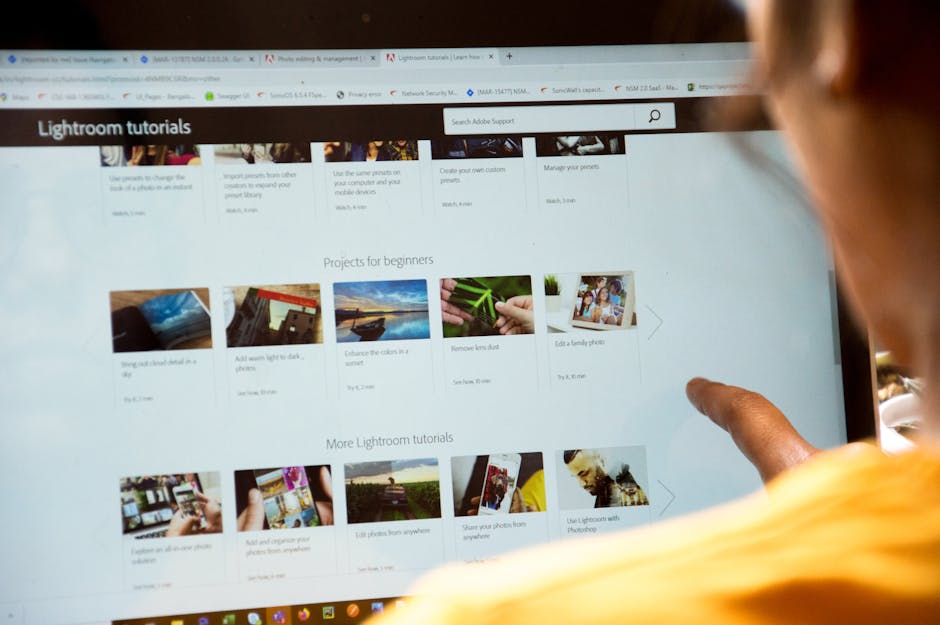Beginner’s Guide to Python: Recommended Tutorials 🐍
Hey there, budding coder! 👋 Are you ready to dive into the world of Python programming? Whether you’re looking to start a new career or just dabbling in code for fun, Python is a fantastic choice. It’s one of the most popular programming languages today, known for its simplicity and versatility. But where should you start? Don’t worry, I’ve got you covered! Let’s explore some of the best tutorials that will help you master Python in no time.
Table of Contents
1. Why Choose Python? 🐍
2. Best Python Tutorials for Beginners 📚
3. Tips for Successful Learning 🎯
4. Conclusion
5. FAQ
Why Choose Python? 🐍
Python is like the Swiss Army knife of programming—it’s versatile, powerful, and user-friendly. Here’s why it stands out:
First up, Python’s syntax is clean and easy to understand. This makes it perfect for beginners who might be intimidated by more complex languages. Plus, Python is widely used in various fields, from web development to data science, which means learning Python can open up a world of opportunities. 🌍
Additionally, Python’s community is vast and vibrant. If you ever hit a snag, there are countless forums, communities, and resources ready to help. You’re never alone on this journey!
Best Python Tutorials for Beginners 📚
Here are some top-notch resources to kickstart your Python journey:
1. Codecademy’s Python 3 Course
Codecademy offers an interactive Python 3 course that’s perfect for beginners. You’ll get hands-on with coding challenges and real-world projects. It’s a fantastic way to learn by doing. 💻
2. “Automate the Boring Stuff with Python” by Al Sweigart
If you’re looking to apply Python to everyday tasks, this book and its accompanying online course are for you. Al Sweigart’s approach is practical, focusing on automating mundane tasks to make your life easier. 📖
3. Python for Everybody by Dr. Charles Severance
This free course on Coursera is a crowd favorite. Dr. Chuck’s engaging teaching style and comprehensive curriculum make it a must-try. Plus, you can audit the course for free! 🎓
4. The Python Tutorial on Python.org
For those who prefer official documentation, the tutorial on Python’s official website is a great starting point. It covers the basics thoroughly, making it a solid foundation for your learning journey. 📘
Tips for Successful Learning 🎯
Learning a new programming language can be challenging but rewarding. Here are a few tips to keep you on track:
🔹 Set realistic goals: Break down your learning into manageable chunks. Celebrate small victories along the way!
🔹 Practice, practice, practice: The more you code, the better you’ll get. Try solving problems on platforms like LeetCode or HackerRank to sharpen your skills.
🔹 Join a community: Engage with other learners. Join forums, attend meetups, or participate in coding challenges to stay motivated and inspired.
🔹 Stay curious: Don’t just stick to tutorials. Experiment with your own projects and ideas. The best way to learn is by doing!
Conclusion
Embarking on the Python journey is an exciting adventure. With the right resources and a curious mindset, you’ll be coding like a pro in no time. Remember, the key is consistency and practice. So grab your laptop, pick a tutorial, and start coding! 🚀
FAQ
Q1: How long does it take to learn Python?
A: It varies based on your prior experience and the time you dedicate. Generally, with consistent practice, you can grasp the basics in a few weeks.
Q2: Is Python a good language for web development?
A: Absolutely! Python is widely used in web development, especially with frameworks like Django and Flask.
Q3: Can I learn Python without any programming background?
A: Yes, Python’s simplicity makes it an ideal choice for beginners with no prior experience.
Q4: What projects can I start with as a beginner?
A: Start small! Try building a simple calculator, a to-do list app, or a basic web scraper to apply your skills.
Q5: Where can I find more advanced Python tutorials?
A: Once you’re comfortable with the basics, explore platforms like Udemy, edX, and Coursera for advanced courses.
Happy coding! 🎉





